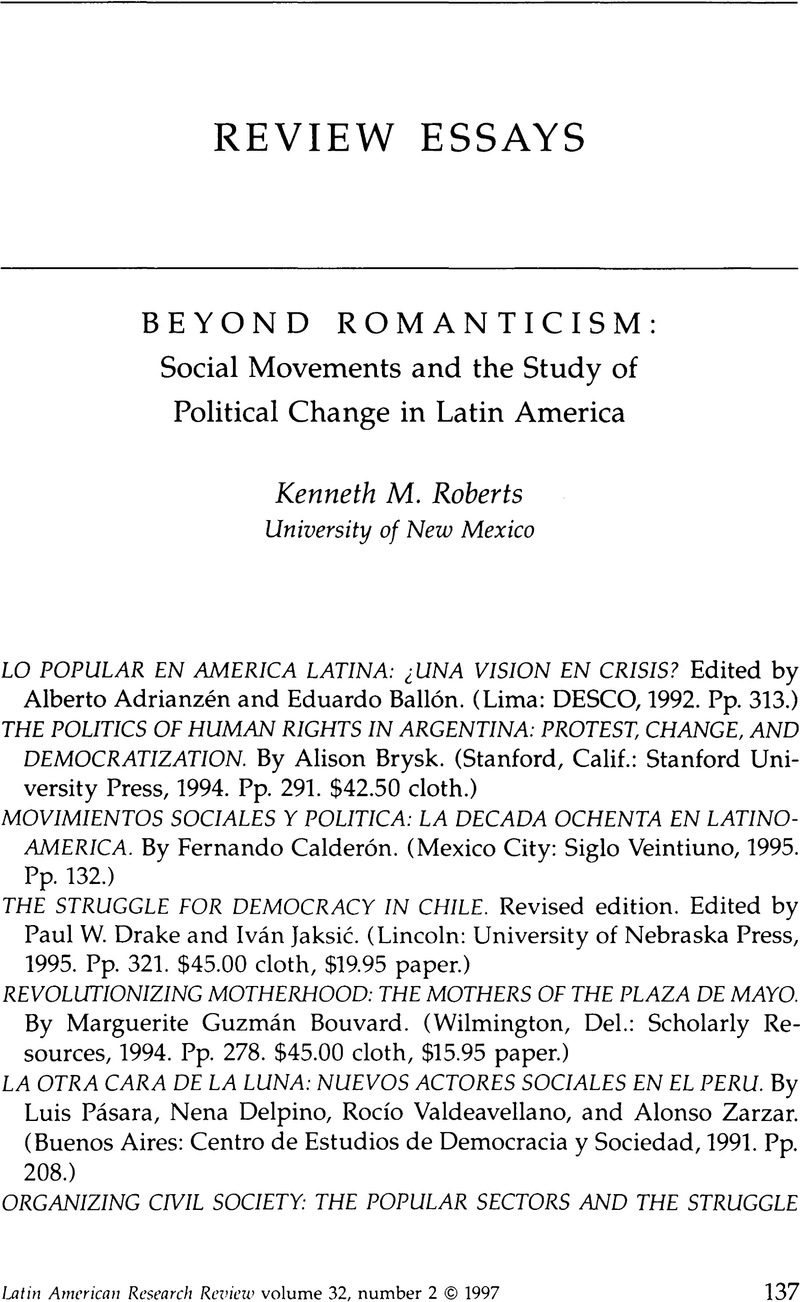Published online by Cambridge University Press: 05 October 2022

1. Some of the best examples of the early celebratory literature include América Latina 80: Democracia y movimiento popular (Lima: DESCO, 1981); and New Social Movements and the State in Latin America, edited by David Slater (Amsterdam: Center for Latin American Research and Documentation, 1985). For an excellent recent collection that is generally more cautiously optimistic, see The Making of Social Movements in Latin America: Identity, Strategy and Democracy, edited by Arturo Escobar and Sonia E. Alvarez (Boulder, Colo.: Westview, 1992).
2. See Paul Lawrence Haber, “Identity and Political Process: Recent Trends in the Study of Latin American Social Movements,” LARR 31, no. 1 (1996):171–88.
3. These issues are analyzed in Kenneth M. Roberts, “From the Barricades to the Ballot Box: Redemocratization and Political Realignment in the Chilean Left,” Politics and Society 23, no. 4 (Dec. 1995):495–519.
4. For a perceptive analysis of the issues, see María del Carmen Feijóo, with Marcela Mari Alejandra Nari, “Women and Democracy in Argentina,” in The Women's Movement in Latin America: Participation and Democracy, 2d ed., edited by Jane S. Jaquette (Boulder: Westview, 1994), 109–29.
5. James Scott, Weapons of the Weak: Everyday Forms of Peasant Resistance (New Haven, Conn.: Yale University Press, 1985).